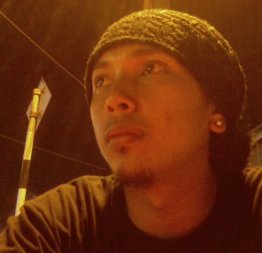10 years ago
port folio
Followers
Art Gallery
My Blog List
-
-
11 years ago
-
14 years ago
-
14 years ago
-
15 years ago
-
16 years ago
-
16 years ago
-
-
Reflective Practice
Labels
- Charcoal Drawing (1)
- Graphic (1)
- Pen Drawing/Sketch (1)
- Pencil Drawing/Sketch (4)
- Printmaking (3)
- Watercolor (3)
Blog Archive

MOHD RAJIS JAMALUDDIN

About This Blog
soul the dust of everyday life."
-PABLO PICASSO-
My art scope mighty be more to conspicuous effect on paper or canvas or other platform. This blog was create to share my artwork, knowledge or anything related and I want to improve my skill and knowledge about art. Beside sharing my artwork, also I want to make friend with all people around the world and know their art scene and art activities as well.
but a shadow of the divine
perfection."
" There is only one valueble
thing in art: the thing you cannot explain."
REFLECTIVE PRACTICE
Reflective practice is a concept used in education studies and pedagogy. It was introduced by Donald Schön in his book The Reflective Practitioner in 1983. The concepts underlying reflective practice are much older. The Meditations of Marcus Aurelius has been described as a prototype of reflective practice by Seamus Mac Suibhne .[1]
Reflective practice is a continuous process and involves the learner considering critical incidents in his or her life's experiences. As defined by Schön, reflective practice involves thoughtfully considering one's own experiences in applying knowledge to practice while being coached by professionals in the discipline. It has been described as an unstructured approach directing understanding and learning, a self regulated process, commonly used in Health and Teaching professions, though applicable to all. (R.Gregory)
In education, it refers to the process of the educator studying his or her own teaching methods and determining what works best for the students. Reflective practice can help an individual to develop personally.
Reflective practice is associated with learning from experience, and is viewed as an important strategy for health professionals who embrace lifelong learning. The act of reflection is seen as a way of promoting the development of autonomous, qualified and self-directed professionals. Engaging in reflective practice is associated with the improvement of the quality of care, stimulating personal and professional growth and closing the gap between theory and practice, (Jasper, 2003).
In reflective practice it is possible to distinguish three different phases. Schön (1983) distinguished between reflection-in-action (at the same time as the practice takes place) and reflection-on-action (afterwards). More recently McAlpine [2] has included the advance reflection (Reflection-for-action) in the model.
Gibbs (1988) reflective cycle is fairly straightforward and encourages a clear description of the situation, analysis of feelings, evaluation of the experience, analysis to make sense of the experience, conclusion where other options are considered and reflection upon experience to examine what you would do if the situation arose again.
Reflective practice is a continuous process and involves the learner considering critical incidents in his or her life's experiences. As defined by Schön, reflective practice involves thoughtfully considering one's own experiences in applying knowledge to practice while being coached by professionals in the discipline. It has been described as an unstructured approach directing understanding and learning, a self regulated process, commonly used in Health and Teaching professions, though applicable to all. (R.Gregory)
In education, it refers to the process of the educator studying his or her own teaching methods and determining what works best for the students. Reflective practice can help an individual to develop personally.
Reflective practice is associated with learning from experience, and is viewed as an important strategy for health professionals who embrace lifelong learning. The act of reflection is seen as a way of promoting the development of autonomous, qualified and self-directed professionals. Engaging in reflective practice is associated with the improvement of the quality of care, stimulating personal and professional growth and closing the gap between theory and practice, (Jasper, 2003).
In reflective practice it is possible to distinguish three different phases. Schön (1983) distinguished between reflection-in-action (at the same time as the practice takes place) and reflection-on-action (afterwards). More recently McAlpine [2] has included the advance reflection (Reflection-for-action) in the model.
Gibbs (1988) reflective cycle is fairly straightforward and encourages a clear description of the situation, analysis of feelings, evaluation of the experience, analysis to make sense of the experience, conclusion where other options are considered and reflection upon experience to examine what you would do if the situation arose again.



























2 comments:
cayala ajis....
thanks beb =>
Post a Comment